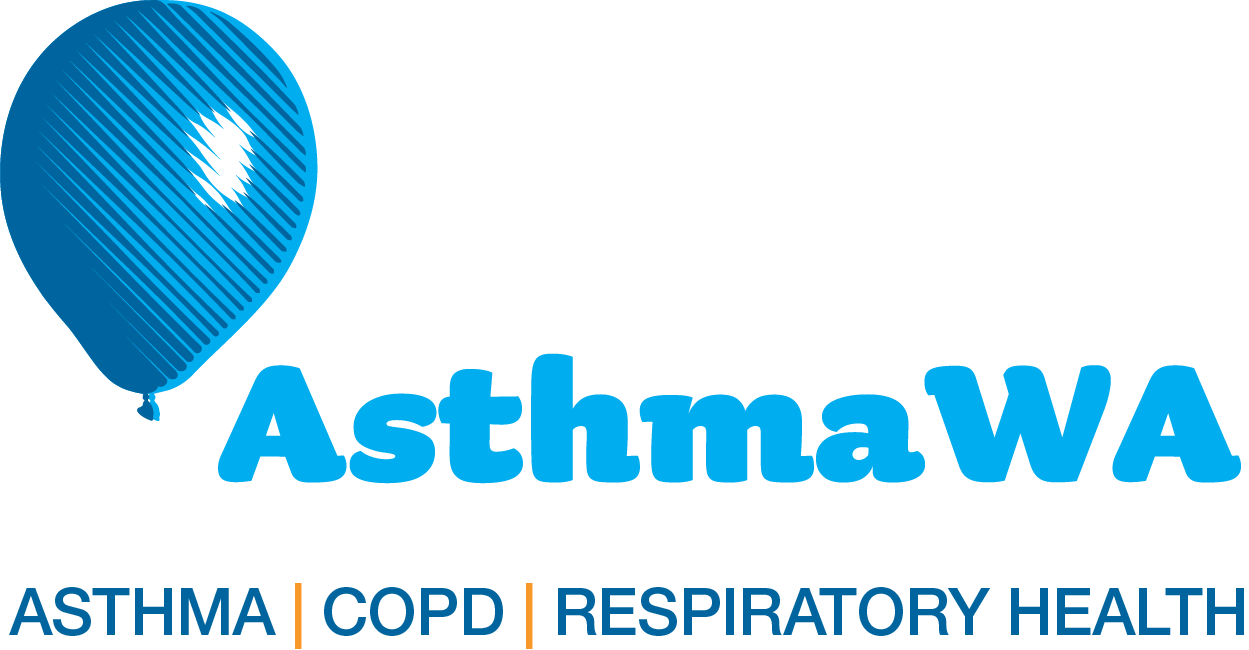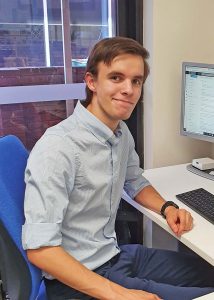Throughout the year we’re fortunate to be joined by interns helping us in a range of projects, as they gain some experience in an office and non-profit environment. It’s important that all members of our team understand what asthma is and what we do at Asthma WA, which is why new team members complete an Asthma Education session with one of our Respiratory Health Team.
Our most recent intern, Nicholas, who joined us through the McCusker Centre for Citizenship, had a one-hour education session with Respiratory Health Educator, Kate. We asked him to tell us about his experience.
How would you describe to someone what happens in an asthma education session?
In a nutshell, it’s one hour of learning about asthma at a level that suits you. There’s a big focus on what’s relevant to the individual: common and uncommon triggers of asthma, how to recognise and use different medications, what a spacer is and how to use it, and Asthma Action Plans too (something I’d never even heard of). If you’re keen to learn more there’s also the physiology of asthma itself, as well as the medications themselves. It’s great that they are able to tailor the session to suit each person’s needs.
How much did you know about asthma beforehand?
I knew dribs and drabs from hearing about it before and it being mentioned by other people. Respiratory sensitivity, inflammation in response to exercise or pollen, struggling to breathe, that kind of thing. I do have a couple of friends with asthma, but they don’t really talk about it and I’ve never even seen them use a spacer.
What’s something you were surprised to learn about asthma?
I guess I’d always kind of thought asthma was a childhood thing, that you either grew out of or kept having to manage forever. It really surprised me to learn just how wrong that was. While it can fly under the radar until adulthood, lots of people don’t even develop asthma until they are adults! It can change in severity over time, and even seem to vanish, and then flare-up again further down the track.
Was anything in the education session difficult to understand?
Not at all! Kate explained the mechanisms of triggering asthma and the symptoms in a simple way, as well as how things like warm air, nose-breathing, and medications can help. She didn’t race through the information and I felt comfortable asking questions, which is really important in not only understanding asthma but then having the confidence to manage it after the session is done.
Who would you recommend should do this session?
Everyone! Even if you don’t have asthma yourself, the more people who understand what it is, how it impacts a person’s wellbeing and what to do in an emergency situation the better! It also shouldn’t just be a one-and-done session either! Follow up sessions are a really good way to stay on top of changing medications or keeping well-practised with your medication and spacer technique. And it’s not like it’s an annual subscription model or anything, because they’re free!
Kate also brought up some really interesting misconceptions that people have about asthma treatment. For example, a lot of people hear “corticosteroids” and think of anabolic steroids – obviously not wanting to be ‘juiced’, they refuse the treatment and their asthma gets worse – despite the fact that the body processes them completely differently! She also gave an example of a person who didn’t realise that only a doctor should change treatment plans. They thought they could change their medication because they seemed to be well-controlled, but just because they aren’t presenting symptoms, doesn’t mean there isn’t something happening underneath that still needs to be dealt with. This is apparently really common…and concerning!
How confident would you be now if someone had an asthma flare-up in front of you?
Definitely 10 times more confident than I felt before the education session! Even being first aid qualified, I didn’t feel asthma was something I’d be useful in managing as it just isn’t touched on enough in conventional first aid training.
How have you enjoyed your internship?
It really has opened my eyes to the support that is available for people with asthma. Not just that, but some of the issues that you might not expect people with asthma to have to go through; things other people just don’t think about! It’s been amazing to learn about how engaged Asthma WA is with the community (or rather, communities) around asthma and COPD.
About Nicholas:
Nicholas has just finished the first year of his Bachelor of Science degree at the University of Western Australia, studying Physiology and a minor in Science Communication. After finishing as an Undergraduate, he aims to study medicine and enter the field as a General Practitioner.
When he’s not at uni or studying, Nicholas is a big fan of TV. Whether it’s new Marvel shows, or classics like How I Met Your Mother and Dawson’s Creek, he’s always finding new content to binge! He also works as an academic tutor and a part-time medical receptionist.

